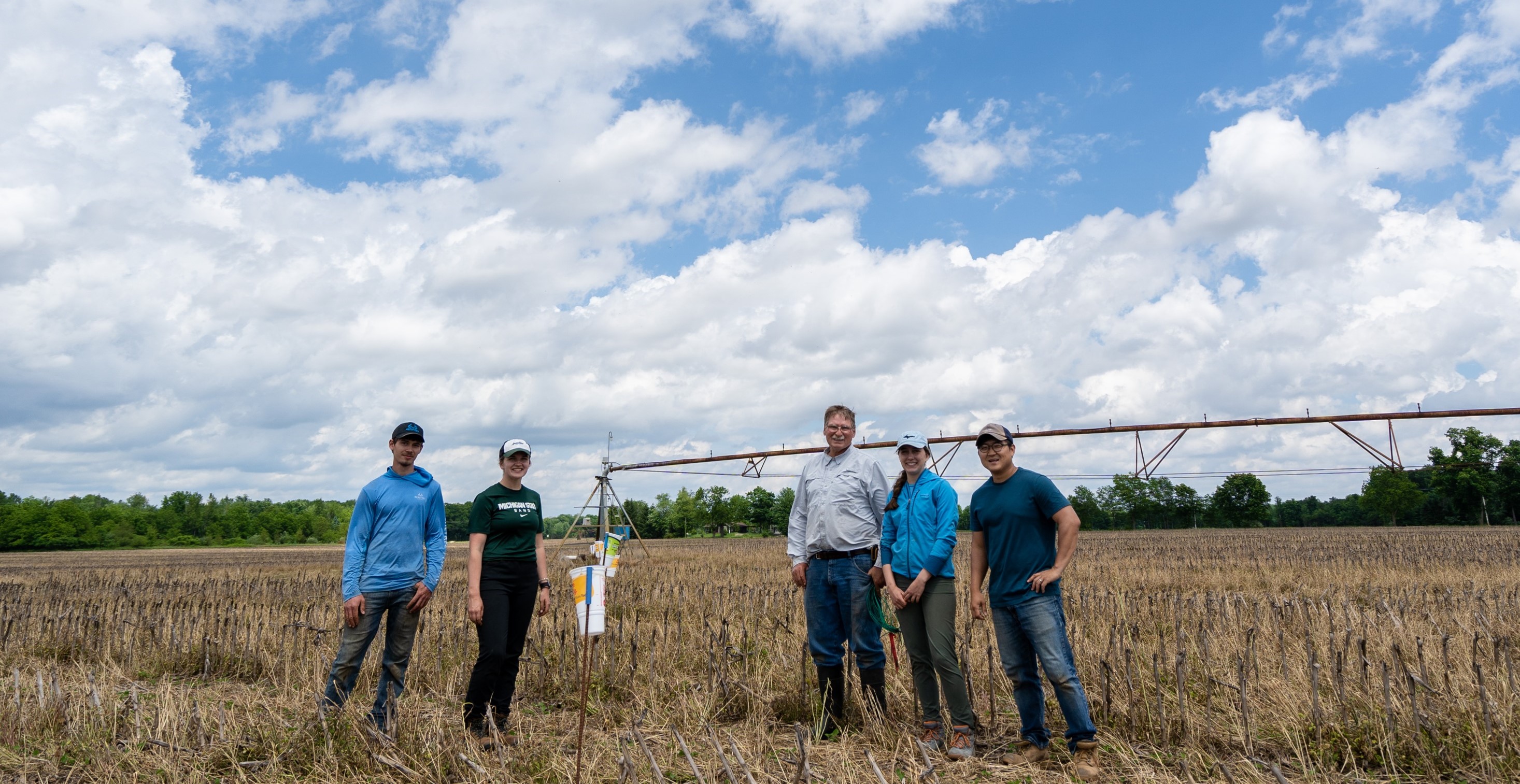Irrigation Efficiency Improved by BAE Graduate Student Using Low-cost Sensor Technology
Brenden Kelley's project focuses on improving irrigation efficiency and disease management with low-cost sensor technology and scheduling methods. They utilize LOCOMOS (Low-Cost Sensor Monitoring System), developed by the research grou

 Water usage has been a challenge for researchers and farmers for years. While water management has come a long way with the development of technologies such as irrigation and recycling water, there is still an opportunity to improve. This challenge is precisely what Brenden Kelley has set out to answer in his Master's Degree.
Water usage has been a challenge for researchers and farmers for years. While water management has come a long way with the development of technologies such as irrigation and recycling water, there is still an opportunity to improve. This challenge is precisely what Brenden Kelley has set out to answer in his Master's Degree.
Kelley comes from an agricultural family. Growing up on his family-owned crop farm, he knew he wanted to work in the agricultural field. Attending Michigan State University (MSU) is a family affair, with multiple members of his family graduating from MSU. After speaking with the Biosystems Engineering advisor, Kelley knew biosystems engineering was the right fit for him. Combining engineering and agriculture gave him the best of both worlds; he completed his undergrad in biosystems engineering in 2022 and will finish his second Bachelor's degree in forestry this spring.
As an undergraduate, Kelley began working with BAE Assistant Professor Younsuk Dong in the Biosystems & Agricultural Engineering Irrigation Research Group, where he worked on irrigation projects for the lab. According to the Biosystems & Agricultural Engineering Irrigation Research Group, irrigation scheduling maintains an optimum water balance in the soil profile for crop growth and production. This process is essential because it can prevent plant stress, maximize water use efficiency, and minimize the leaching of nitrates and potential contaminants.
"Fresh water is considered by many to be the most critical natural resource on the planet." said Kelley. "Given that agricultural irrigation requires a significant amount of water, it is only logical that we should try to increase yield as much as possible per volume of irrigation water applied."
Farmers are always interested in ways to maximize their yield for minimum dollar input, this interest may lead to the integration of irrigation scheduling as a vital component of farming practice. The Biosystems and Agricultural Engineering Irrigation Research Group provides information and guidance to farmers to help them maximize their return on investment while conserving water.
Kelley's project, which the USDA NRCS funds, focuses on improving irrigation efficiency and disease management with low-cost sensor technology and scheduling methods. They utilize LOCOMOS (Low-Cost Sensor Monitoring System), developed by the research group, to collect in-field soil and environmental conditions to make better-informed decisions on when to water and how much to water and minimize the potential risk of plant diseases.
The sensors monitor soil moisture, humidity, temperature, solar radiation, and leaf wetness. Kelley has been gathering data for the last two years and has begun analyzing the information to provide recommendations. Kelley plans to present his information at the American Society of Agricultural and Biological Engineers (ASABE) conference and MSU Extension meetings and have conversations with growers that are interested in improving their irrigation practices.
"This research will emphasize the impact that irrigation scheduling and crop monitoring can have on agriculture as a whole. Considering the number of acres that are under irrigation, increasing water use efficiency slightly on a per-field basis can create a noticeable large-scale impact." said Kelley. "Improving irrigation practices and water use efficiency has the potential to produce more food with less water, reduce input costs, conserve energy, and protect water as a natural resource."



 Print
Print Email
Email




